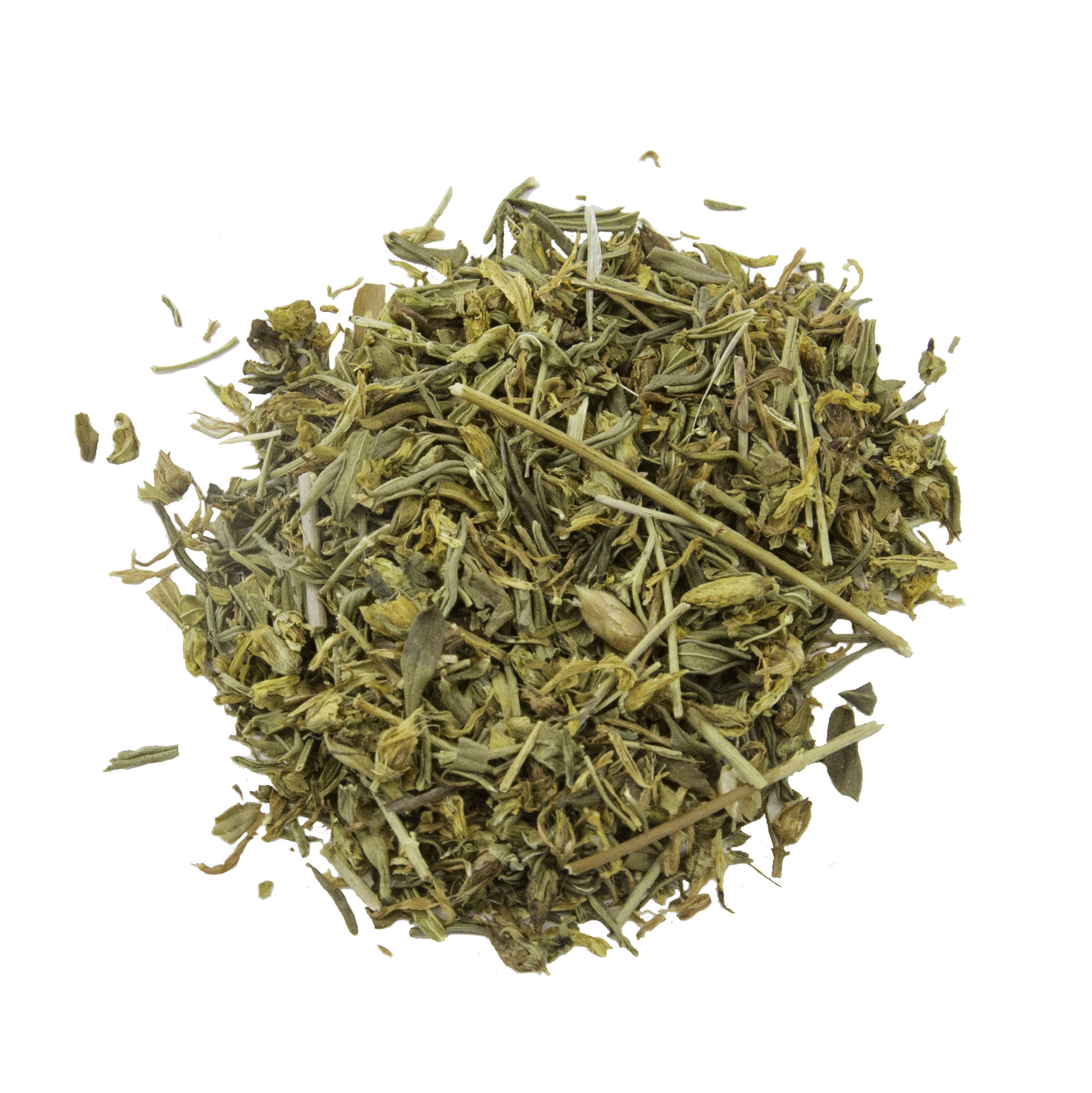-
Description
Appropriately dubbed by many as a magical plant, St. John’s Wort (hypericum perforatum) carries a rich history, full of cultural nuances and mystical legends.
Legend tells us that in the first century, early Christians were credited for naming St. John’s Wort after John the Baptist as the brightly coloured flowers will usually expose themselves on or before June 24th which is celebrated as his birthday. The striking arrangement of its five yellow petals resembles a halo, and when picked exudes a crimson red liquid which was believed by some to symbolize the spilled blood of John. The “wort” derives from an Old English word for herb or plant.
St. John’s day is also when daylight is the longest in Europe and is known as the Summer Solstice, an important planting time that is historically rich with pagan, native and early religious rituals. This became a perfect environment for the mystical shroud surrounding St. John’s Wort to be unveiled, exposing its supposed spiritual powers which could chase away demons and any other troublesome spirits.
-
Directions
St John's wort has been used for hundreds of years to help with mental health problems, ask your health care practitioner if you can benefit from its calming effects. For making St. John's Wort Tea, use 2 tablespoons with 1 cup of hot water. Steep for 10 minutes.
| SKU | Unit Size |
|---|---|
| 25421 | 3 x 50 g |
-
Description
-
Directions
-
Appropriately dubbed by many as a magical plant, St. John’s Wort (hypericum perforatum) carries a rich history, full of cultural nuances and mystical legends.
Legend tells us that in the first century, early Christians were credited for naming St. John’s Wort after John the Baptist as the brightly coloured flowers will usually expose themselves on or before June 24th which is celebrated as his birthday. The striking arrangement of its five yellow petals resembles a halo, and when picked exudes a crimson red liquid which was believed by some to symbolize the spilled blood of John. The “wort” derives from an Old English word for herb or plant.
St. John’s day is also when daylight is the longest in Europe and is known as the Summer Solstice, an important planting time that is historically rich with pagan, native and early religious rituals. This became a perfect environment for the mystical shroud surrounding St. John’s Wort to be unveiled, exposing its supposed spiritual powers which could chase away demons and any other troublesome spirits.
-
St John's wort has been used for hundreds of years to help with mental health problems, ask your health care practitioner if you can benefit from its calming effects. For making St. John's Wort Tea, use 2 tablespoons with 1 cup of hot water. Steep for 10 minutes.
